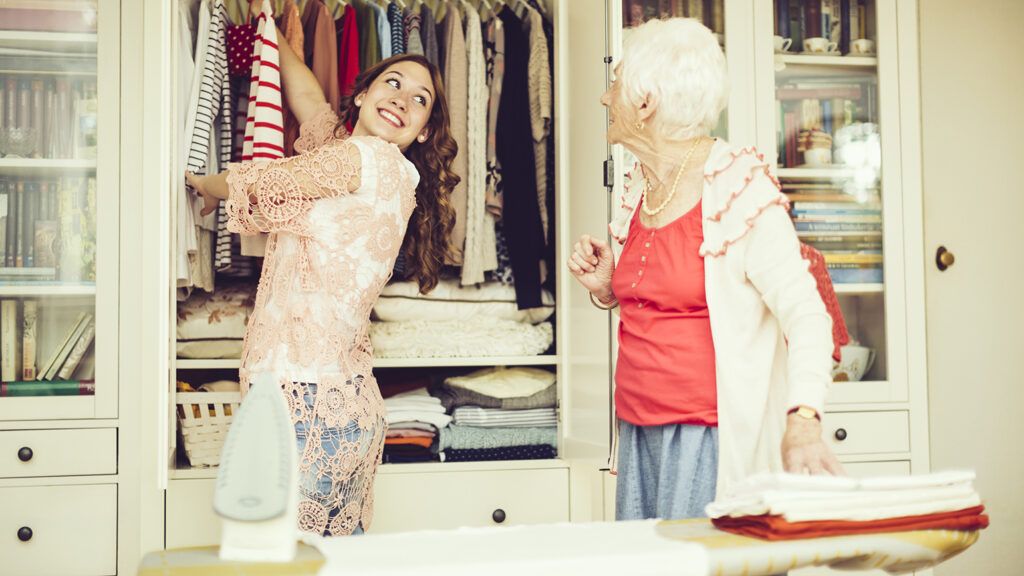Julie Hayes is the Editorial Assistant at Benjamin Rose Institute on Aging
Spring is the traditional time to overhaul the home by scrubbing, dusting, clearing clutter and reorganizing. If you are helping out an older loved one with this once-a-year process, you can make an even greater impact by including measures that will make his or her living environment more safe and secure. You may want to consider making these three additions to the spring cleaning routine to help protect your loved one at home:
- Clear out old medications
You might bristle at the thought of dumping out medications because of the money you’ve spent on them or worries that they are necessary to your loved one’s health, but holding onto old medications that have passed their expiration date may do your loved one more harm than good. Because a number of medications lose their effectiveness after they expire, they can actually have a negative effect on your loved one’s conditions or symptoms. You should toss any medications that have passed their expiration dates, and contact your loved one’s doctor about any important prescriptions that are out-of-date or in low supply.
To properly dispose of old medications, the U.S Food and Drug Administration recommends bringing them to a nearby take-back location found through the Drug Enforcement Administration’s online locator. To dispose of pills at home, the FDA has provided a step-by-step guide for safe trash disposal to minimize the risk of keeping old medications at home if there is no take-back option available near your home. Make sure to also remove all personal information on the pill container by peeling off the label or covering the words in marker before throwing out the container.
- Get rid of household tripping hazards
According to the National Council on Aging, falls are the leading cause of both fatal and non-fatal injuries in older adults. Falls have resulted in over 2.8 million injuries treated in the emergency room annually, leading to over 800,000 fall-related hospitalizations. For this reason, it’s a good idea to remove tripping hazards as part of your approach to spring cleaning, and then keep them out of the way year-round. You can reduce your loved one’s risk of a fall in the the following ways:
- Declutter floors by putting away things like shoes, electrical cords, toys and pet bowls, particularly on stairs or in places with high foot traffic
- Try not to use throw rugs; substitute non-slip mats, especially in the kitchen and bathroom
- Tape down any loose pieces of carpet, and replace worn carpeting as quickly as possible
- Examine all rooms for loose or uneven floorboards and schedule repairs right away
Another excellent way to prevent falls is to install grab bars near the bath, toilet and stairs. Also keep in mind that all areas of the house should be well lit to improve visibility. National organization Age Safe America offers thorough and comprehensive home safety assessments to help you pinpoint areas in your home that are potential risks to your loved one’s safety.
- Secure necessary documents and shred the rest
Paperwork is a fact of modern life, so it’s likely your loved one has gathered a lot of tax documents, bank slips and policies over time. It can be hard to figure out what you need to keep and what should be discarded. Most experts recommend holding onto tax documentation and any associated receipts for three years, since the Internal Revenue Service can only challenge tax filings within three years of the initial filing. Documentation for active policies and deeds, as well as any permanent documents such as birth certificates, Last Wills and Testaments, social security cards and marriage licenses should also be kept and stored in secured locations. Have a conversation with your loved one about any others who should be made aware of the location of these documents in case of an emergency.
Financial records, tax documents, deeds and policies that are no longer current or active should be disposed of. However, improper disposal of sensitive documents can lead to identity theft due to the practice of dumpster diving. To prevent this, the U.S. government recommends:
- Using a paper shredder to destroy documents containing sensitive information. For additional protection, shredded paper can be disposed of in separate trash bags and taken out of the house at various times.
- Cutting up or punching holes in old credit cards
- Hiring a disposal company, especially if the volume of papers is too great to handle on your own. If you are unsure where these services are offered in your area, the Shred Nations locator can help you find shredding services close to home.






